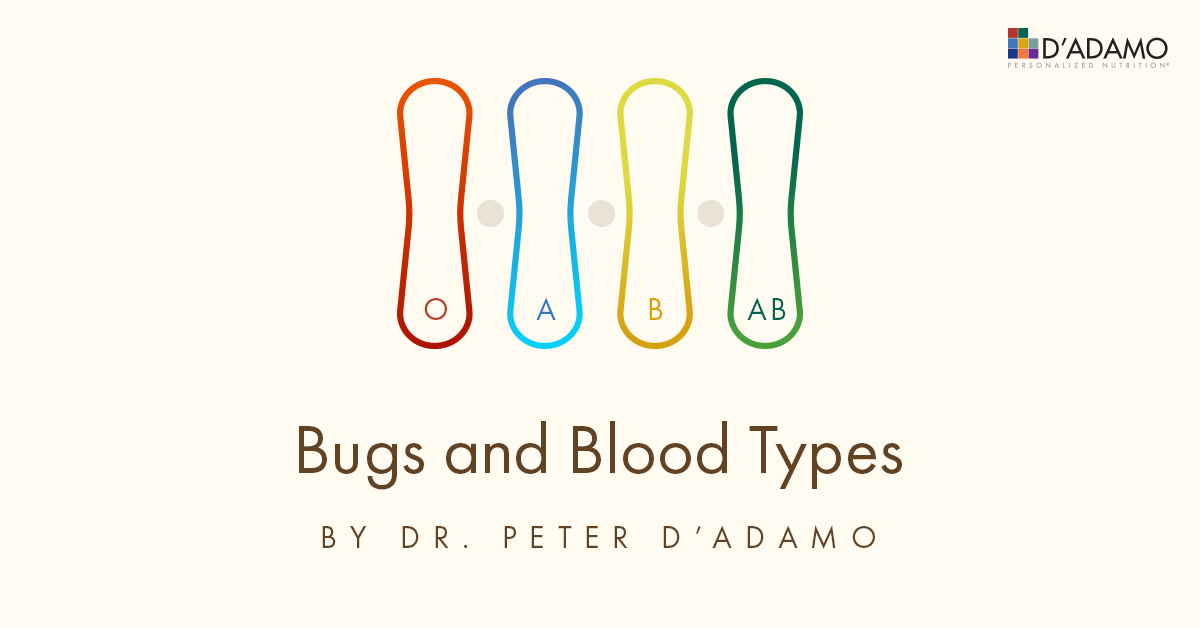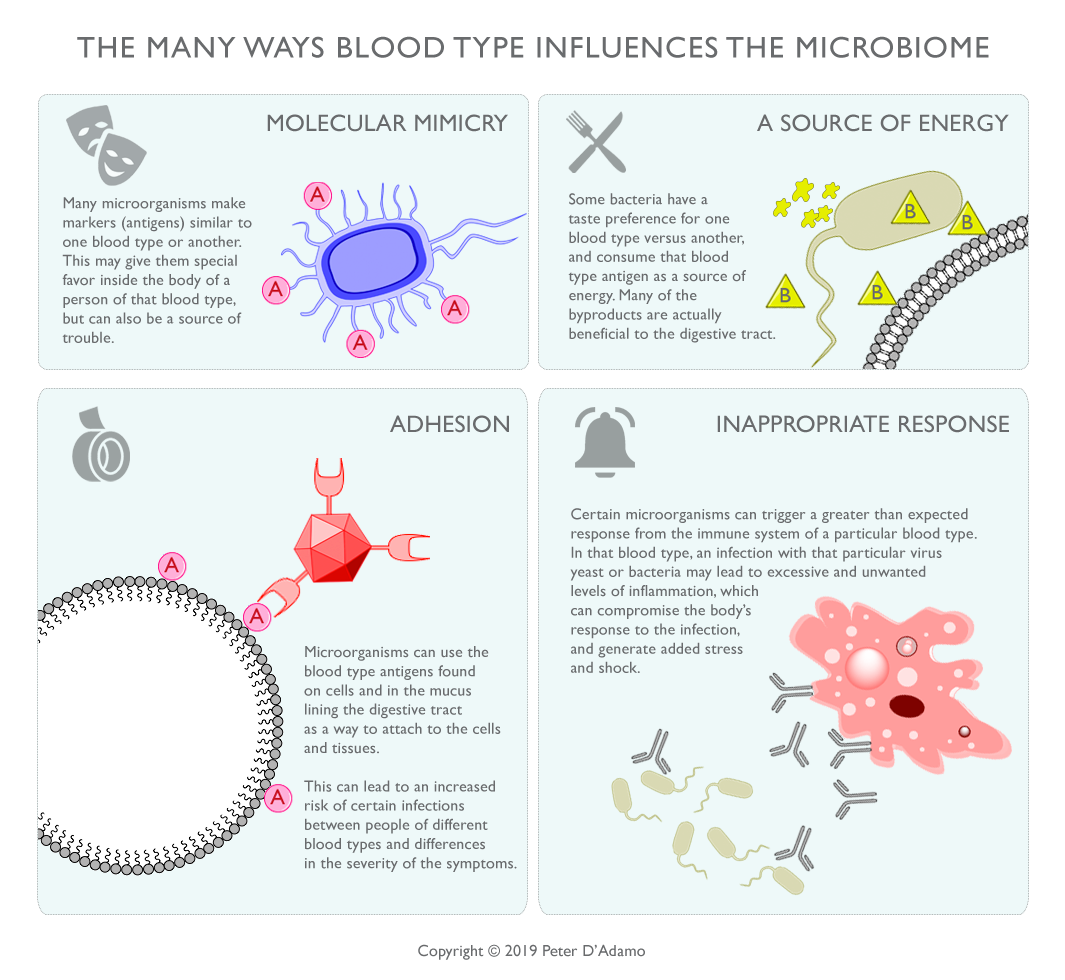
From my very first book, Eat Right for Your Type, I’ve written about the mysterious connection between the ABO blood types and the makeup of the microbial world inside our bodies, also known as the ‘microbiome.’ As evidence increasingly arrives linking dysbiosis (the pathological imbalance of our flora) with diseases and disorders ranging from cancer to depression, it is pleasing to see that our blood types continue to play a significant ‘conditioning’ role on the population of bacteria, viruses and other microbes that constitute the outside world inside of our bodies.
An interesting study was recently published in the journal Science Bulletin that provided more evidence supporting a link between blood type and the microbiome. [1] Entitled ‘Gut microbiota have blood types as human,’ the article describes how a Chinese team of researchers found that gut bacteria possessing the same antigen structure as the blood type of the host human were over-represented (i.e., bacteria resembling Blood Type A were found in greater frequency and abundance in the digestive tracts of Type A human subjects).
These variations become clearer if we add secretor status to the mix. The microbiome variations between secretors and non-secretors have a long and extensive research history.
Blood Type Genetics and the Microbiome
As you can see from the chart below, there are many ways that blood type genetics can influence the composition of the microbiome beyond what was identified in the Chinese study.

For example, some bacteria have a specific appetite for one blood-type antigen or another, since after all, these molecules are just simple combinations of sugars stuck on either proteins or fats. A bacteria with a preference for the sugar fucose might enjoy a trip through the digestive tract of a Blood Type O host for the simple reason that they’ll find more fucose there. This explains why Type Os tend to harbor more of the yeast organism Candida albicans than the other types. This organism has suction cups similar to lectins that have a preference for this sugar. Long before Eat Right 4 Your Type hit the shelves, it was quite evident that your microbiome was indeed already eating right for its type.
Microbiome and the Development of Personalized Probiotics
These observations prompted me to develop personalized probiotic formulas specific for each blood type. However, I’ll let you in on a secret: the probiotic part of each formula is only part of the magic. The real secret weapon is the base of specific bacterial nourishing factors (known as ‘prebiotics’); these condition the gut by attracting specific families of bacteria, which enhance the overall health of the ecosystem by providing direct health benefits or crowding out undesirable elements.
This is a far more ‘intelligent’ approach to engineering optimum balance (known as ‘eubiosis’) than simply supplying probiotics willy-nilly—for one simple reason. There are lots of health-enhancing bacteria out there besides ones from which we can make a probiotic formula. Many are quite delicate and therefore cannot survive processing or existing in an oxygen-rich environment and cannot be easily cultivated outside of the body (likely why fecal transplants often work when probiotics don’t).
Each D’Adamo Personalized Nutrition Polyflora probiotic formula has a unique mix of personalized probiotics and a bedrock of prebiotics known to be especially beneficial for that particular blood type. Because the approach to formulation is so precise, we are able to avoid the ‘blunt instrument’ approach to probiotic formulation (i.e. if some are good, more will be even better) which only raises costs and results in an overpriced product.
A blood-type-specific probiotic enhances organisms that can produce a wide array of antibacterial and antifungal compounds. Some of these organisms can actually regulate the body's own immune system, stimulating the immune system when necessary, and calming it down when there's auto-immune activity.
Supporting Your Microbiome with The Blood Type Diet
A well-balanced microbiome promotes detoxification by breaking down and eliminating carcinogens, and enhancing liver function and cholesterol metabolism. Healthy gut flora helps to fully break down foods into their component parts, reducing the chance of reactions. Yet, aging, poor dietary choices, stress and antibiotic/prescription drug overuse can cause the quantity of your microbiome to decline over time.
By eating right for your blood type, and supplementing with a complementary personalized probiotic formula, you can provide significant long-term benefit and protection for your microbiome.
1. Wang, et al. Gut microbiota have blood types as human. Science Bulletin. Volume 63, Issue 20, 30 October 2018, Pages 1311-1313
